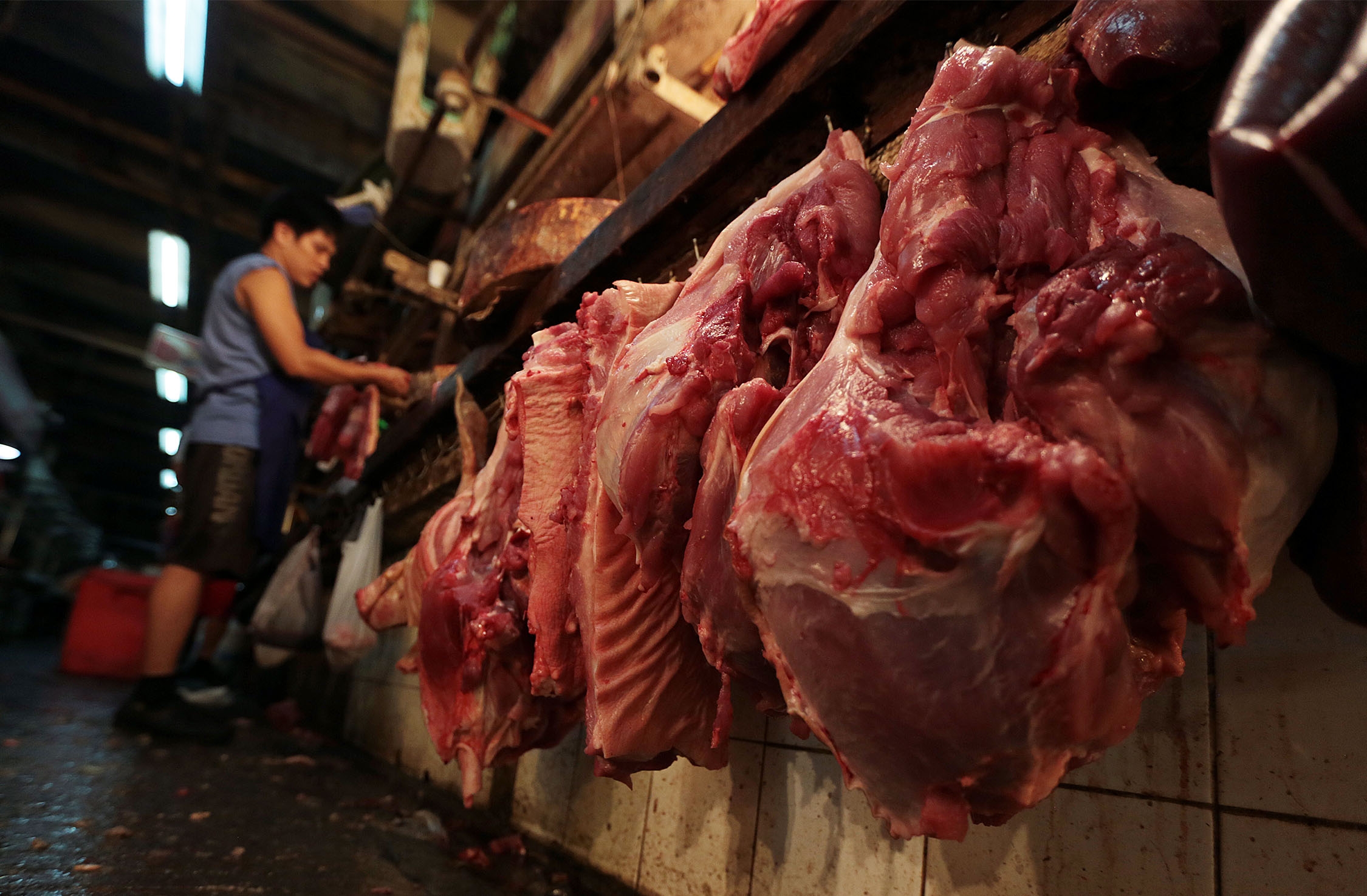1 ASF case can wipe out 65% of Philippines’ hog trade

PORK IN THE NEWS Pork is sold at a Pasay City market as the government banned the entry of the meat from several countries as a protection against African swine fever.
Extra vigilance was needed to keep pork contaminated by African swine fever (ASF) from entering the country as only one ASF case could wipe out small backyard raisers, which make up 65 percent of the country’s pork industry, according to an agricultural group.
Abono party-list chair Rosendo So, in a statement, said an interagency system must be in place to prevent the entry of contaminated pork anywhere in the country.
So said this was urgent following the first case of ASF in Southeast Asia found in Vietnam.
Tight coordination was needed among different agencies like the Bureau of Customs (BOC), the Philippine Ports Authority, the Bases Conversion and Development Authority, the Philippine Coast Guard (PCG), airport and seaport officials and local government units, said So, who also heads Samahang Industriya ng Agrikultura.
At the Mindanao Container Terminal in Tagoloan town, Misamis Oriental province, BOC officials said they were on high alert for the entry of imported meat.
Article continues after this advertisementProtocol
Article continues after this advertisementLawyer Roswald Joseph Pague, deputy collector of the regional BOC office, said they were already ordered by the BOC chief “to be on the lookout for ASF infected imported meat.”
“The usual inspection protocol is being implemented,” Pague said.
He said as soon as imported meat arrived, BOC officials would immediately inform the Department of Agriculture (DA) and the Bureau of Quarantine “so they could conduct inspection right away.”
In Zamboanga, all processed meat entering the city was subjected to thorough inspection before it reaches grocery shelves, the city veterinarian said.
Dr. Mario Arriola, Zamboanga veterinarian, said his office had already received instruction from the DA to keep watch for ASF-infected meat.
Arriola said even processed food or meat were “closely monitored” and barred from entry if these come from countries with ASF cases.
The DA, according to So, should also tap the help of agriculture stakeholders like National Federation of Hog Farmers Inc. and the Philippine Veterinary Medical Association.
The DA has already banned the importation of pork products, like pig skin leather, from countries known to have ASF cases.
Pig skin
According to the Bureau of Animal Industry, the ASF virus can survive in pig skin—even when dried—for up to 300 days.
The ban, however, had put at risk the jobs of at least 16,000 workers in Pampanga province, according to Vice Gov. Dennis Pineda.
In an appeal made on January, Pineda asked the DA to exempt the company Super1 Philippines Inc. from the ban.
“Constant vigilance is key,” said So. “Only one shipment and we will all have a problem,” he said.
“This can wipe out our small-scale backyard raisers,” So added.
100% check
The ban on importation has been imposed on pork from Vietnam, Russia, Ukraine, Czech Republic, Moldova, South Africa, Zambia, Hungary, Bulgaria, Belgium, Latvia, Poland, Romania, China and Mongolia.
Quarantine stations at Ninoy Aquino International Airport have been directed to install foot baths at all entry points nationwide.
But So said also needed was 100-percent X-ray scanning of hand-carried bags of passengers from countries with ASF cases. —REPORTS FROM JIGGER JERUSALEM, JULIE ALIPALA AND TONETTE OREJAS